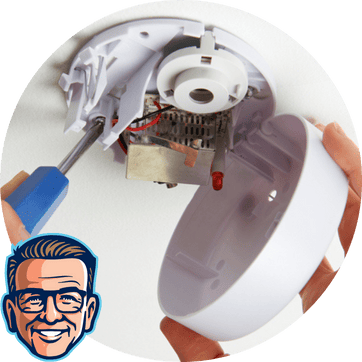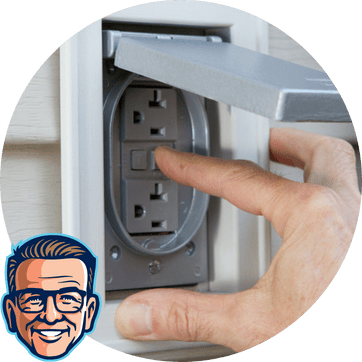Fires can move fast—your alarm should move faster. At Jim Needham Heating, Cooling, Plumbing, Drain & Electrical, we install smoke detection systems with the urgency and precision they deserve. Our team evaluates your home’s layout, checks for outdated or missing coverage, and installs alarms in locations designed for maximum response time. Whether you’re upgrading an older property or adding protection to a new space, we handle the job with clean work and code-compliant practices. This isn’t just about checking a box—it’s about giving your household the earliest possible warning in the moments that matter most.
Smoke Alarm Installation in Denver, CO


Where Should Fire Detection Devices Be Installed in a Home?
Effective placement is just as important as having detectors in the first place. Too many homes rely on outdated devices or miss key areas entirely. We help identify where protection is missing and install new units where they’ll do the most good.
Here’s where we focus installation:
- Near each sleeping area to provide immediate warning during the night
- Inside every bedroom for added protection during door-closed conditions
- On every level of the house, including finished attics or basements
- In central gathering spaces like living rooms and open-plan areas
- Near stairways and hallways where smoke is likely to travel
- Away from vents, fans, or windows that could disrupt sensor accuracy
Every home is different, so we tailor our placements to your layout—not just the guidelines. The goal is to give your household the earliest possible alert, no matter where the danger starts.
Here’s The Deal: Proper Installation Matters More Than the Brand
Even high-end detection systems can fail to protect if they’re mounted incorrectly or wired poorly. Our team doesn’t just install a product—we deliver a working safety strategy. That includes checking circuit access, setting interconnect functionality when needed, and confirming that sound levels reach across each part of the home. You get protection that’s thoughtfully placed, thoroughly tested, and built to last.
Do detectors need to be hardwired, or can they be battery-operated?
Battery-operated units are allowed in many cases, but hardwired models offer more consistent power and can be interconnected for whole-home alerts. We often recommend hardwiring with a backup battery for maximum reliability. This way, the system continues to function even during a power outage. We’ll walk you through the options that fit your home and local code.
How do I know it’s time to replace an existing unit?
If your device is more than 10 years old, it’s time to replace it—regardless of whether it still chirps or tests properly. Over time, the sensors degrade and may stop detecting danger even if the rest of the device seems fine. Our team checks manufacture dates and suggests upgrades only when necessary, and repairs if possible. Replacing them before they fail gives you peace of mind.
Can I install new units in the same location as the old ones?
In some cases, yes—but we also assess if those locations still offer the best coverage. Homes change over time with renovations, added square footage, or shifting usage patterns. We may recommend updated placements based on how you use the space now. Any installation we do is based on both current code and real-world effectiveness.
©2026 Jim Needham Heating Cooling Plumbing and Drain. All Rights Reserved. License: #PC0003707. Privacy Policy.
